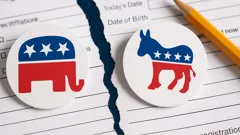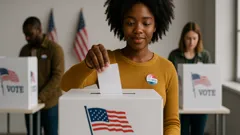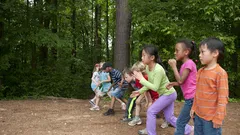272
8
5 minutes
Suggested Articles

First-generation Ivy Leaguers triumph over unique college challenges
Discover key insights, life hacks, and data-driven tips for first-generation college students thriving in prestigious U.S. universities. Find practical strategies, unique challenges, and fresh perspectives essential for student success.

How Education Became the Sharpest Fault Line in American Politics
News & Updates

Voter and Civic Education: The Cornerstones of True Democracy
Civic Education

Civics lessons give students a lifeline in times of community crisis
Civic Education

How Civic Engagement Is Transforming College Life and Shaping Leaders
Volunteer

High schoolers drive change as schools empower youth civic voices
Civic Education

Patriotic education reshapes American classrooms as the nation nears 250 years
Civic Education

Unlocking the Hidden Power of Social Learning and Collective Intelligence
News & Updates

Students and educators defend free speech as campus politics reshape college life
Civic Education

Families and neighbors rediscover unity as they break political silence together
Civic Education

Parents see children gain confidence and lifelong friends at today’s inclusive summer camps
Volunteer

First-generation Ivy Leaguers triumph over unique college challenges
Hiring

Americans brace for possible Social Security cuts that reshape retirement
News & Updates

Why this Florida data leak changes how we think about privacy
News & Updates

Build your own AI chatbot and unlock hands-on tech superpowers
Resources & Tools

How to outsmart hidden medical expenses in your golden years
Civic Education

California workers secure jobs this summer with new 2025 laws
Hiring
 Love Women Vibes
Love Women Vibes

Comments